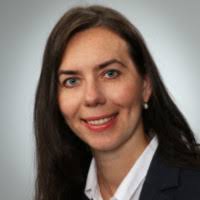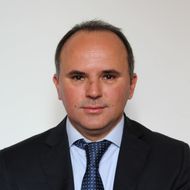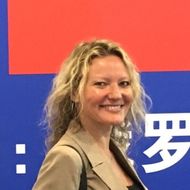International experience in a time of the pandemic: GSB students learn from the best professors of the world's leading universities

Pandemic, widespread restrictions, and closed borders didn’t stop HSE Graduate School of Business students from learning from the professors from the world's top universities and business schools: Desislava Dikova (WU Vienna), John Branch (Ross School of Business, University of Michigan), Alexander Krasnikov (Quinlan School of Business, Loyola University of Chicago), Tatiana Garanina (School of Accounting and Finance, University of Vaasa), Amarilli Fabrizio (Polytechnic University of Milan), Alexey Semenov (Jack C. Massey College of Business, Belmont University), Natalia Ribberink (Hamburg University of Applied Sciences).
Visiting professors shared their impressions from working with HSE GSB students.
Professor John Branch (Ross School of Business, University of Michigan, USA):

It was a delight to teach a course at HSE as a visiting professor. The students were highly engaged, enthusiastic, and energetic… despite the course being on Microsoft TEAMS. I look forward to the opportunity to teach again, hopefully in person in Moscow.
Associate Professor Tatiana Garanina (School of Accounting and Finance, University of Vaasa):

During the fall semester 2020/21 I taught a course on “International Financial Reporting and Analysis” for 4th year students in the Business Administration programme. Due to the current epidemiological situation the course was conducted online. I would like to note the engagement and interest of students during the course. Despite the fact that finance and accounting is not their main area of specialization, students were ready to analyse companies’ financial statements and make management decisions based on the results. The lectures included many assignments and discussions in which the students actively participated. In addition, the course included a group project on the analysis of financial reports of companies. It should be mentioned the in-depth analytical work of the students and the high quality of their projects on the analysis of such companies as Alphabet, Amazon, BMW, Netflix, Nestle and others. I sincerely hope that the knowledge gained from the course will be useful for students to build a successful career in the future.
Lecturer Amarilli Fabrizio (Polytechnic University of Milan, Italy):

It was a great opportunity for me to teach as a visiting professor, even though virtually, at HSE. I was initially thrilled and scared by the expectations of the students and of the university. It was challenging to face a different training context, different students, and most of all different mentalities. And everything was emphasised by the virtual dimension, no chance to get a direct interaction with students. Different questions came to my mind. “Are my topics interesting for them? Is my teaching approach too theoretical or too operational? Should I follow a narrative or schematic approach?” But in the end, something happens whenever I start interacting with students. I asked for comments, I listened to their questions and suggestions.
And I got a confirmation that contamination is always an enhancing experience in the learning process. For both sides. I trust the students could absorb some new concepts and ideas. I myself received comments and indications by the students, that helped me understand a different reality and made me see under a different perspective concepts and cases that I’ve presented many times. I also confronted with some silence, which didn’t cover distraction, but deep and active listening, that turned into profound and unexpected questions.
My suggestions for the students and for the school? In a global world, understanding cultures is as important as a specific domain background. Your students are in a favourable position: they are studying in one of the best Business Schools at international level and they are studying in a different language, which is likely to be the common language in the working domain. And they have the chance to interact with teachers coming from different places. I invite them to exploit this opportunity, to grasp any occasions they have to gain an international and intercultural experience. And sharing is instrumental in this. The more they will share, the more they will learn.
Professor Natalia Ribberink (Hamburg University of Applied Sciences, Germany):

As a result of the lecture course on "Doing Business in Europe", I was left with wonderful impressions of working with the GSB students: despite the course's compact schedule, I was able to get to know the participants personally through individual and team project assignments. The students have an excellent grasp of international business terminology, analytical skills and the ability to process large amounts of information in a short time to prepare a report, presentation or a video message. They have also shown excellent ability in organising collaborative work in virtual teams.
Considering today's circumstances, the course was conducted online in MS Teams, which allowed us to compensate the lack of face-to-face communication and also made it possible to implement innovative solutions within the course, such as, for example, interactive project tasks for course participants prepared by representatives of large European companies. In addition, the online course was made available to students from several GSB programmes and campuses at the same time. Perhaps the hybrid teaching mode could be one of the practices worth pursuing in the long term.
I wish all course participants and GSB students success in their studies, many victories and achievements, as well as curiosity and a constant desire to explore new horizons!
